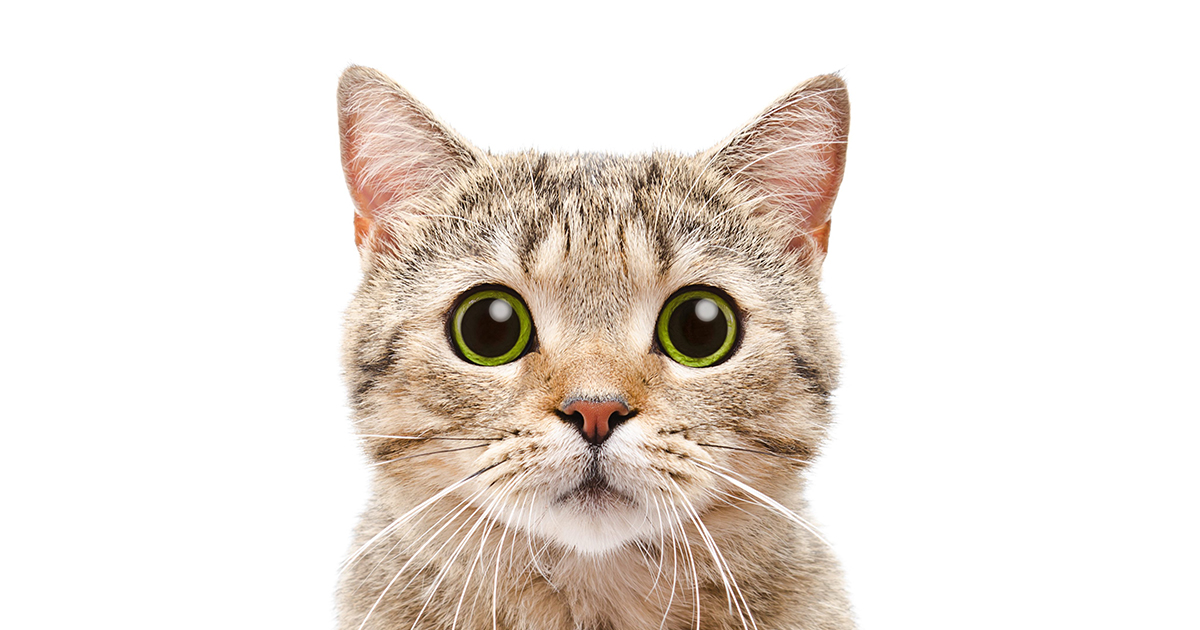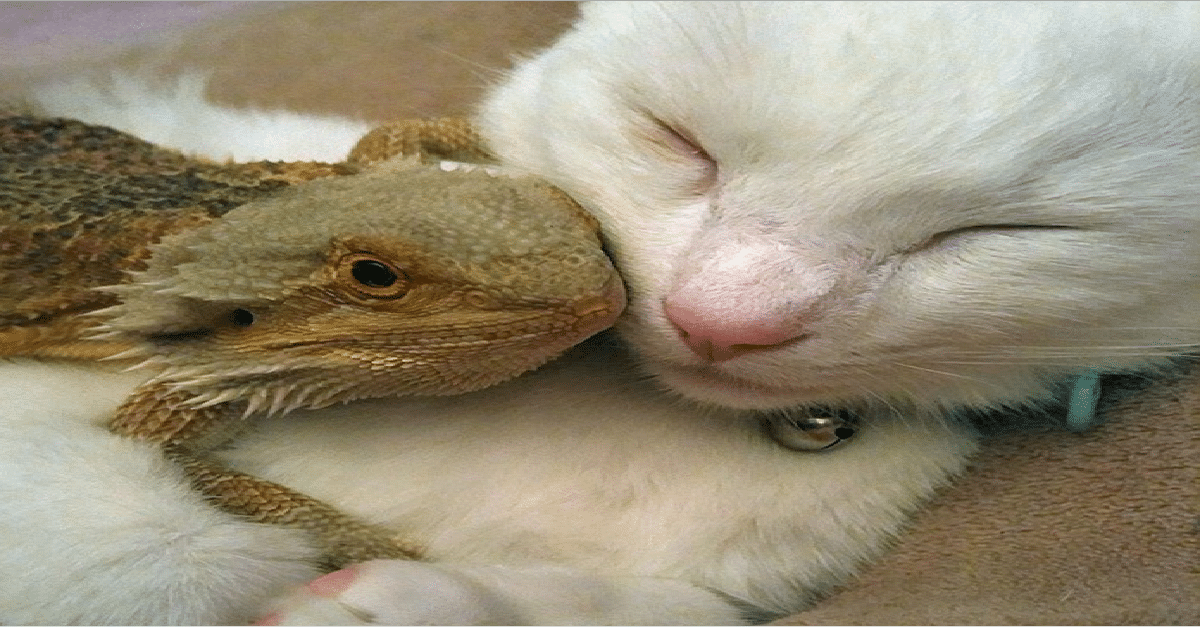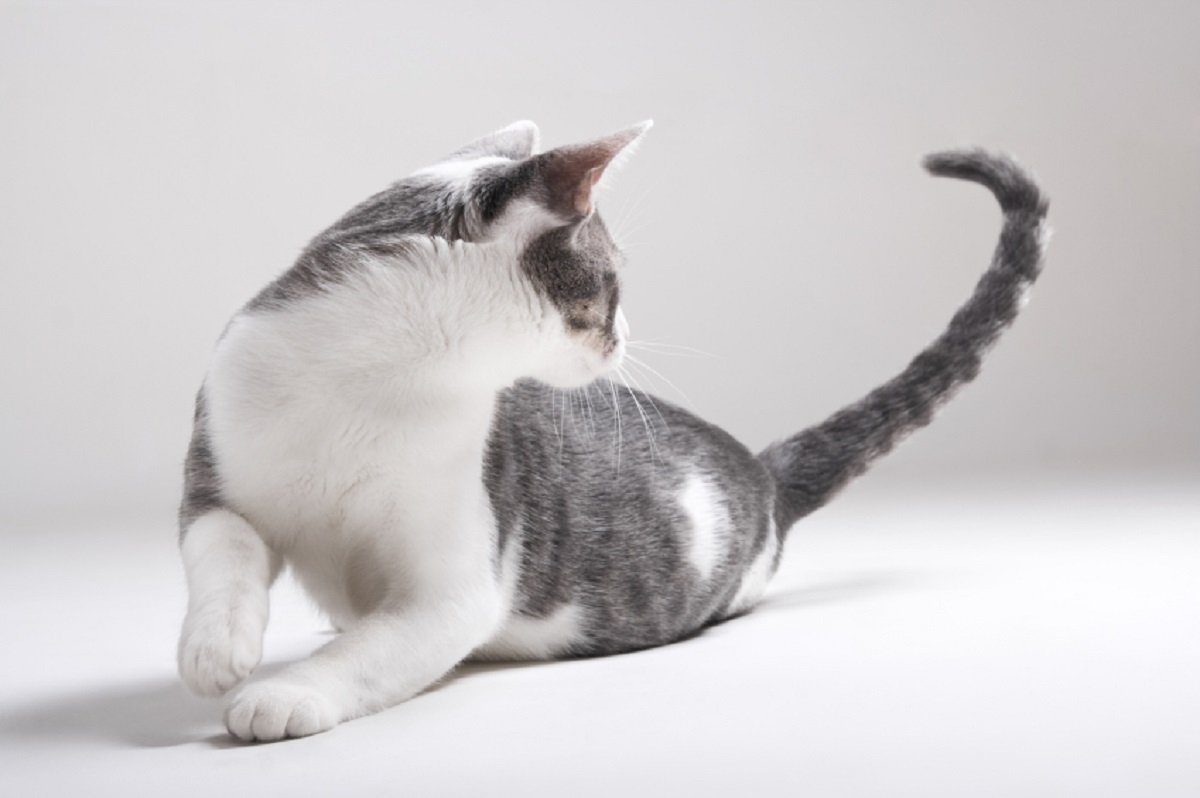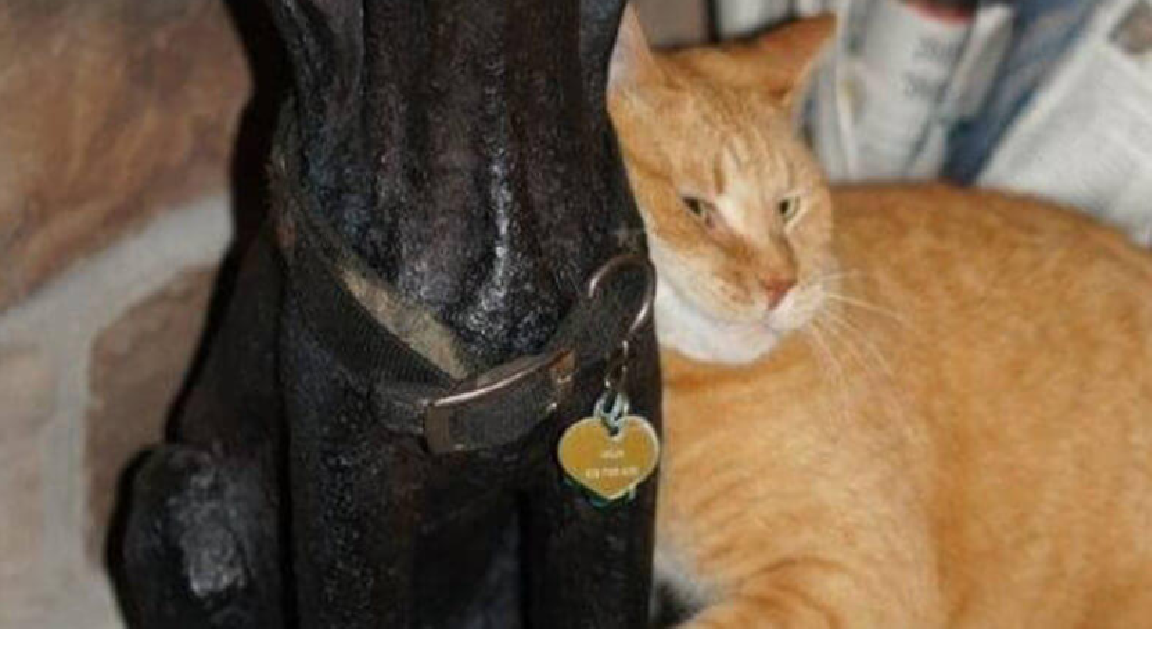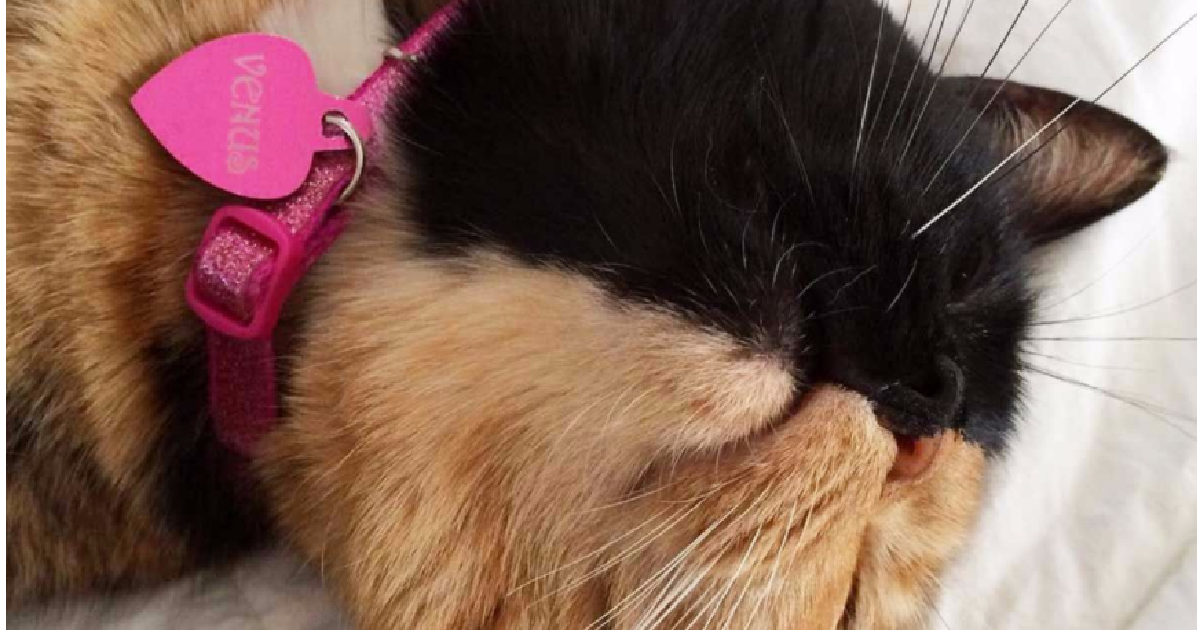As cat owners, we always strive to provide the best nutrition for our feline friends. So, when it comes to introducing new foods into their diet, it’s important to know what is safe and beneficial for them. One such question that often arises is, can cats eat peas?
The good news is that cats can indeed eat peas and they can provide several nutritional benefits. Peas are safe for cats and can be given in moderation as occasional treats or included in small amounts in homemade cat food. In fact, you may find that some commercial cat foods include peas as a carbohydrate and a source of vitamins, minerals, and fiber.
Peas can be beneficial for your cat’s overall health and well-being. They can aid in digestion, thanks to their fiber content, and help prevent constipation or diarrhea. Additionally, peas can contribute to hydration as they contain a high water content. This can be particularly beneficial for cats who may not drink enough water on their own.
For cats struggling with weight management or diabetes, peas can be a favorable addition to their diet. The low-calorie and low-fat nature of peas can assist in weight control, while their slow-digesting carbohydrates help prevent blood sugar spikes, making them suitable for diabetic cats.
Moreover, peas offer a range of essential nutrients that support your cat’s overall health. They are rich in potassium, sodium, zinc, manganese, magnesium, calcium, vitamins C, B6, D, and iron, all of which play vital roles in maintaining different bodily functions.
When feeding peas to your cat, it’s important to use plain, fresh or frozen peas that are cooked and free of any additives. Remove the pea pods, except for snow peas, as their pods are soft and safe to consume. However, canned peas should be avoided due to their high sodium content.
As with any new food, it’s important to monitor your cat’s reaction. While most cats can safely enjoy peas, some may develop allergies or sensitivities. Look out for symptoms such as skin irritation, gastrointestinal issues, refusal to eat, or hair loss. If any signs of allergies occur, it’s best to consult a veterinarian for appropriate care.
In conclusion, cats can eat peas as part of their balanced diet. Peas offer several nutritional benefits that aid in digestion, hydration, weight management, and overall health. Remember to introduce peas in moderation and be mindful of any potential allergies. By incorporating peas into your cat’s diet, you can provide them with a variety of nutrients and keep them happy and healthy.
Can Cats Eat Peas? The short answer is yes, they can.
- Cats can eat peas in moderation and can benefit from their nutritional value.
- Peas aid in digestion, prevent dehydration, help with weight management and diabetes control.
- Peas are rich in essential nutrients like potassium, sodium, zinc, manganese, magnesium, calcium, vitamins C, B6, D, and iron.
- Offer only plain, cooked peas without any additives and remove pea pods except for snow peas.
- Monitor for any signs of allergies or sensitivities when feeding peas to your cat and consult a veterinarian if needed.
Do Cats Like Peas?
While cats have different preferences, some cats may enjoy peas. Cats can be curious creatures, and offering them a single plain pea can be an interesting experiment to see if they show any interest. It’s not uncommon to find cats playing with peas, batting them around, or even eating them.
However, it’s important to be mindful of how cats interact with human food. Cats begging for peas or any other human food should be discouraged. Feeding peas from the table can lead to unwanted behaviors and create an unhealthy association with human food. It’s best to avoid this temptation and provide peas only in the cat’s designated eating area.
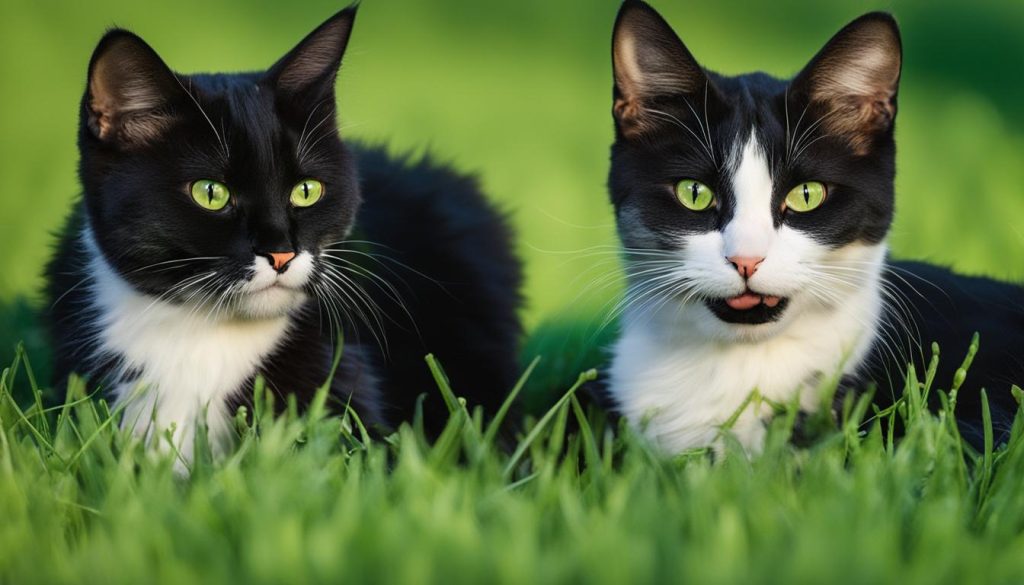
Health Benefits of Peas for Cats
Peas offer several health benefits for cats. They are packed with nutrients that promote a cat’s overall well-being. One of the key benefits of peas is their fiber content, which aids in maintaining a healthy gastrointestinal system. It can help prevent issues like constipation or diarrhea, ensuring smooth digestion for your feline friend.
In addition to their fiber content, peas contribute to hydration in cats due to their high water content. This can be especially beneficial for cats who may not drink enough water on their own. Including peas in their diet can help keep them hydrated and promote better kidney function.
Peas also play a role in weight management and diabetes control for cats. They are a low-calorie and low-fat food option that can help reduce calorie intake and maintain a healthy weight. Furthermore, peas have a low glycemic index, meaning they do not cause a rapid rise in blood sugar levels. This makes them suitable for cats with diabetes and can help prevent blood sugar spikes.
Furthermore, peas are rich in essential nutrients that contribute to a cat’s overall health. They contain potassium, sodium, zinc, manganese, magnesium, calcium, and vitamins C, B6, D, and iron. These nutrients support various bodily functions, such as muscle function, bone health, and the immune system.
Overall, including peas in your cat’s diet can provide various health benefits, from promoting gastrointestinal health to aiding in weight management and preventing diabetes. Their nutrient-rich composition ensures that your cat receives the essential nutrients necessary for maintaining optimum health.
Image: A bowl of fresh peas, illustrating the nutritional benefits of peas for cat’s health.
Feeding Peas to Cats
When it comes to feeding peas to cats, there are a few important considerations to keep in mind. First, you can serve peas to your feline friends as fresh or frozen peas that are cooked without any additives. Be sure to remove the pea pods before offering them to your cat, except for snow peas, which have soft and edible pods.
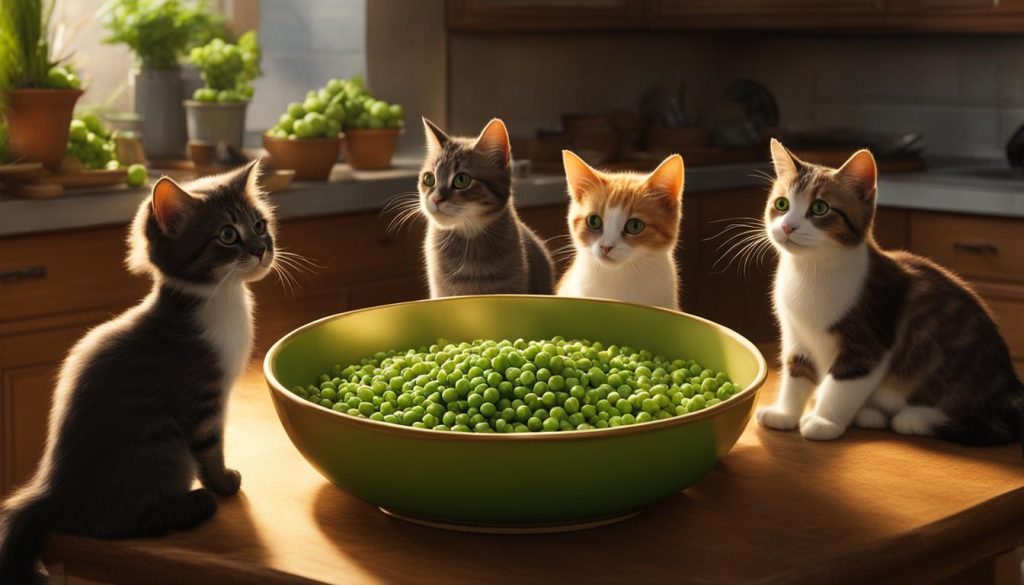
While canned peas may be convenient, they are not recommended for cats due to their high sodium content. It’s best to opt for fresh or frozen peas to provide your cat with the most nutritional value.
If you prefer preparing homemade cat food, you can also include peas in your recipes. However, always be cautious and consult with a veterinarian to ensure the recipe meets your cat’s nutritional needs.
While peas can offer many benefits to cats, it’s vital to be aware of any allergies or sensitivities your cat may have. Some cats may develop allergic reactions to peas, which can manifest as skin irritation, gastrointestinal issues, refusal to eat, or even hair loss. If you notice any signs of allergies, it’s important to seek veterinary care for appropriate diagnosis and treatment.
In summary, feeding peas to cats can be a nutritious addition to their diet when served fresh or frozen, cooked without pods. Avoid canned peas due to their high sodium content, and exercise caution when including peas in homemade cat food recipes. Remember to monitor your cat for any signs of allergies and consult with your veterinarian for personalized advice.
Conclusion
Cats can safely enjoy peas as part of their diet, reaping the numerous nutritional benefits they offer. However, it is crucial to remember that peas should only be given to cats in moderation, either as occasional treats or as a small component of a balanced meal.
Peas provide several health advantages for cats, including aiding digestion, preventing dehydration, supporting weight management, and assisting with diabetes control. Additionally, peas are rich in essential nutrients, such as potassium, sodium, zinc, manganese, magnesium, calcium, vitamins C, B6, D, and iron, which contribute to a cat’s overall well-being.
While introducing peas to your cat’s diet, it is essential to be aware of each cat’s individual preferences and any potential allergies or sensitivities they may have. Regular monitoring and consultation with a veterinarian are recommended when introducing any new foods, including peas, into a cat’s diet.
Incorporating peas in a cat’s diet can bring numerous benefits, but moderation is key. Remember to consult with your veterinarian and follow their guidance to ensure your feline friend enjoys a well-balanced and nutritious diet.
FAQ
Can cats eat peas?
Yes, cats can eat peas as they are safe and provide several nutritional benefits.
Are peas safe for cats?
Yes, peas are safe for cats to eat. They can be given in moderation as occasional treats or included in small amounts in homemade cat food.
What are the nutritional benefits of peas for cats?
Peas are a good source of vitamins, minerals, and fiber. They aid in digestion, prevent dehydration, help with weight management and diabetes control, and provide essential nutrients for overall health.
Do cats like peas?
While cats have different preferences, some cats may enjoy peas. Owners can offer a single plain pea to their cats to see if they show interest.
Can cats digest peas?
Yes, cats can digest peas. However, it’s important to feed peas in moderation to prevent any digestive issues.
Are peas included in cat food?
Yes, some commercial cat foods may include peas as a carbohydrate and source of vitamins, minerals, and fiber.
How can peas benefit a cat’s health?
Peas can aid in digestion, prevent dehydration, help with weight management and diabetes control, and provide essential nutrients for overall health.
How should peas be served to cats?
Peas can be served to cats as fresh or frozen peas, cooked without any additives. Pea pods should be removed, except for snow peas, which have soft pods.
Can I feed canned peas to my cat?
It’s recommended to avoid feeding canned peas to cats due to their high sodium content.
Can I include peas in homemade cat food?
Yes, peas can be included in homemade cat food recipes and treats. However, it’s important to be cautious of any allergies or sensitivities to peas.
What should I do if my cat shows signs of allergies to peas?
If your cat shows signs of allergies such as skin irritation, gastrointestinal issues, refusal to eat, or hair loss after consuming peas, it’s important to consult with a veterinarian for appropriate care.
Is it important to consult a veterinarian before feeding peas to a cat?
As with any dietary change, it’s recommended to consult with a veterinarian before introducing peas or any new food to a cat’s diet.

